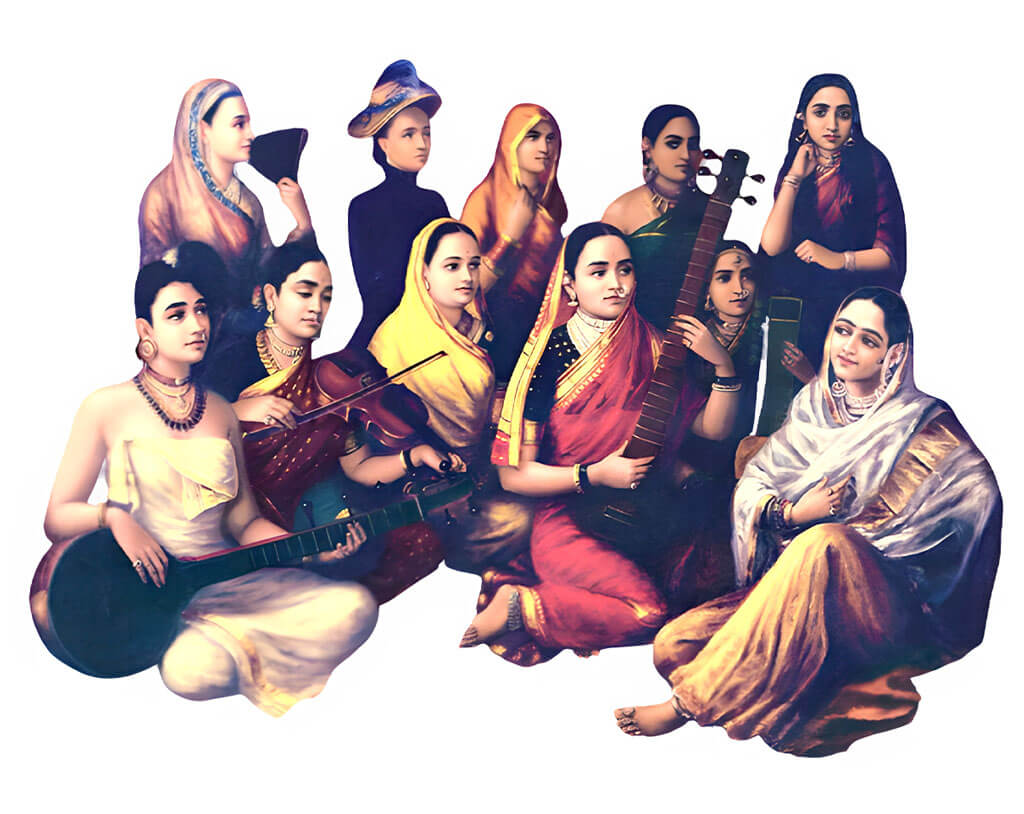
Annual Giving Campaign - 2024-2025 is under way. Donate today by Clicking Here, and help us reach our goal.
So far $522,324 has been raised out of a target of $ 3 Million. Click Here to donate today and help us reach our goal.

$300.00

Admission into a program of study.

In this Role of women in hinduism course, students will be able to:

The limitations of analytical discourses that focus solely on the balance of social-material power are not unfamiliar to students of Hinduism. Focusing on social-material power alone restricts a full discussion of Hindu values and results in weak theoretical formulations that vilify and divide Hindu communities into those that grab power and those that are victims.
Hence, in this course, an expanded notion of power inclusive of spiritual/dharmic, creative, cosmic, and intellectual power will be applied to ancient and medieval Hindu societies. The course will survey varied texts and traditions that represent women and compare the power women held in each. Excerpts from primary textual sources in translation will be critically studied and interpreted from within the Hindu worldview. The course role of women in hinduism will also discuss secondary sources to contrast contemporary discourses about women in Hinduism with the Vedic vision.
By learning about women in Hinduism, students can delve into Hindu ethics and values which offer a radically different vision of equality while being alert to gender differences.
Understanding the position and role of women in Hinduism through primary sources offers a corrective to simplistic judgments passed by modern and colonial discourses that espouse rigid notions of choice, singularized social notions of equality and fixed notions of femininity and masculinity.
The goal of this course is to understand and explore concepts such as streedharma, grihastha ashrama, yuga dharma and womanhood models such as rishika, brahmavadini, sadyovadhu, gurupatni, sahadharmini and putrika. The course will introduce feminism as a field of study through the secondary sources and will briefly explore methodological approaches such as liberal feminism, Marxist feminism, sexual difference feminism and postcolonial feminism in connection with Hindu ethical values.
This course will have three major components of learning:
1. Reading and comprehending primary sources in their proper context.
2. Engaging in contemplation, analysis, and discussion-based activities.
3. Presenting and writing about one’s understanding in the form of a paper presentation.
The class structure for this course is designed to foster learning, self-study, reflection, and discussion on a weekly basis. Students are expected to attend and actively participate in a minimum of three contact hours with the faculty every week unless there are emergency circumstances. At the end of the course, students will be required to present a paper to the class, which will be followed by a discussion with their peers and faculty.
$300.00

Sign-up for HUA communications
Main Campus:
Administrative Office:
Sign-up for our free webinars
"*" indicates required fields
On the program page, there are multiple payment plan options to choose from.


